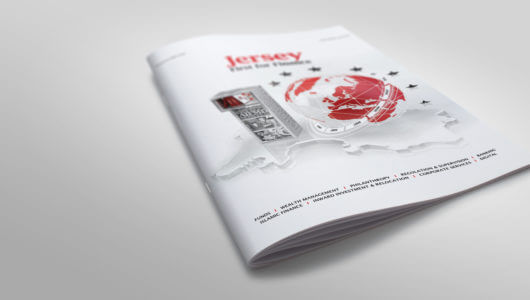Many might say that it is a type of cuisine originating from India. While that might be the case, there are many different styles of curry found around the world. Some dry, some soup-style, perhaps meat, fish or vegetarian. A common feature is the use of a complex combination of spices and herbs. Now think about the name ‘family office’. What is it? How should it be defined?
Like curry, there are many varieties. You could have your own ‘single family office’, or team up with other families to create a ‘multi-family office’. You could recruit your own employees to carry out some of the key functions in-house. Or, you could outsource some or all of the work to a specialist provider who already has the necessary resource to call upon. A common feature is a large, wealthy family group with a complex combination of holding structures and asset types.
Over the course of my career, I have had the fortune of working in SE Asia for six years across two periods, initially in Kuala Lumpur, during the late 1990s and more recently in Singapore. For anyone who has visited this part of the world, they will know how important food is to the culture of the region and that there is a huge range of tastes and culinary specialities to enjoy.
A debate often causing the strongest of polarised views in Malaysia and Singapore is about Laksa and where the best might be found. Laksa is a spicy noodle soup popular in Peranakan cuisine, a style of cooking originating in the northern Malay Peninsula and commonly associated with the Island of Penang.
There are two types of Laksa – ‘Asam Laksa’ – the sour style, fish and tamarind based version usually associated with the northern parts of Malaysia – and ‘Curry Laksa’, based on coconut milk usually found in southern Malaysia, Singapore and Borneo. However, which is best?
Personal preference is influenced by experience, culture, family traditions and (in the context of curry) the ingredients available at the time and place of cooking. Personal preference will equally impact the type of family office chosen.
Across the private wealth industry, everyone has a different view about how you define the term ‘family office’. In much the same way that people from Malaysia will argue about the best Laksa, ‘family office’ means different things to different people. An individual professional’s preferred definition may be biased towards their particular area of expertise and the type of service they are offering.
The client’s wants and needs may also be different. There is no typical family office model. One family’s requirements could be completely different to another. Furthermore, how many generations exist in the family and where individual family members are based, can have a significant impact on the location of the family office. Increasingly, families are becoming more global so having an office based in a time-zone-central, tax neutral location, may be essential to ensure that all family member needs can be practically managed.
Family offices can include a combination of many activities. There will be those more focused on managing a family’s bankable assets, from cash and investment portfolios, to alternative asset classes such as private equity, real estate and hedge funds. Typically, such family offices will employ predominantly investment specialists.
Others family offices may be more administratively focused. Family offices usually go hand-in-hand with a trust, foundation and/or complex corporate structure spread across multiple jurisdictions. With the increasing burden of compliance, particularly regarding the need to report under FATCA and CRS, a family office more focused on compliance, company secretarial and administrative activities may be required with professional staff from an accounting or legal background.
Some family offices may also support a family’s day-to-day lifestyles, managing boats, planes and houses around the world, ensuring all are properly maintained and serviced. This activity may even extend to a concierge-type service, where hotels, holidays and tickets to pop concerts are organised.
Increasingly, wealthy families are turning their attention to philanthropic activities. Giving something back to the community. They may look to establish a charitable foundation to support their chosen causes and look to their family office to help administer and oversee.
Some family offices may incorporate all of the aforementioned activities and requirements.
When thinking back to my time in Asia, my favourite food was frequently found on the street corner or local hawker stall centre. The street food was often delivered by small family run concessions who have served a single style of dish using a recipe handed down through generations. The chef was probably also the owner and he or she would know all the regular customers by name. The stall would not be flash and glitzy and there certainly would be no air conditioning. However, you were guaranteed great quality local food at a very reasonable price.
At the other end of the scale, there were plenty of larger restaurants, typically found within a major hotel or part of a regional chain. You could discover fantastic food often served ‘buffet style’ with many different food styles catered for. If the restaurant were part of a chain, you would have some certainty that the same style and quality of food would be served wherever you went. While you were unlikely to meet the chef or develop any personal connection with the staff, there would be plenty of people around to help you.
Din Tai Fung was one of my favourites. This was a chain of restaurants originating from Taiwan but found across most parts of Asia and specialising in soup dumplings and noodles. Wherever you went in the region, you were guaranteed the same style of dishes.
Jersey might not be the place that you would automatically think of as a culinary centre of excellence for curry. However, it has all the right ingredients to be the location to establish your family office, whatever variety you desire.
Jersey is a leading international finance centre where the breadth and depth of industry specialists are second to none. Whatever your preferred variety might be, you can find experts across all disciplines from investment professionals, lawyers, accountants, trustees and administrators. You can set up your own ‘single family office’ and directly employ the specialists you need. Or, you can outsource some or all of your activities to one of the many specialist providers in this sector.
When thinking about outsourcing, Jersey has some smaller, independent trust companies and investment managers where the strength and depth of the relationship between the service provider owner and family are fundamental. Services are often uniquely tailored and highly personalised and often likened to a ‘trusted family advisor’ model. Much in the same way as the street food vendor knows all of his customers extremely well and tailors his dishes to the differing needs of his regulars.
On the other hand, most of the larger, trust and corporate services providers that are owned by major corporates, banks or private equity houses, will also have a presence in Jersey. Many will have offices around the globe and be comparable to the international hotel and restaurant chains. While such organisations might not be able to provide the same degree of flexibility in their services or allow direct interaction with the business owner, they will give access to a larger pool of resources that might be better suited to complex, multi-generational global families spread across different time zones.
Jersey can satisfy the needs of most family offices. However, if your priority is to think about food, Jersey also enjoys fantastic fresh and locally produced ingredients to produce most any recipe you desire. If you are keen on a curry, then we have our own local expert too: just speak to my friend Kerwin and sample his excellent Jersey Butter Curry Chicken.
Robert Ayliffe, Executive Director, Osiris Management Services.
Robert is a qualified chartered accountant with over 25 years of financial services experience. He has held senior roles in Jersey, Kuala Lumpur and London with PwC and Capita Asset Services and has recently returned to Jersey following four years working in Singapore.
Robert has extensive experience servicing clients across all key sectors of the fiduciary services industry including corporate, funds and trusts for private, corporate and institutional clients, especially those based in SE Asia. He has particular expertise with the London AIM Market and in helping with entrepreneurs and wealthy family groups in the establishment of the family office and PTC structures.

